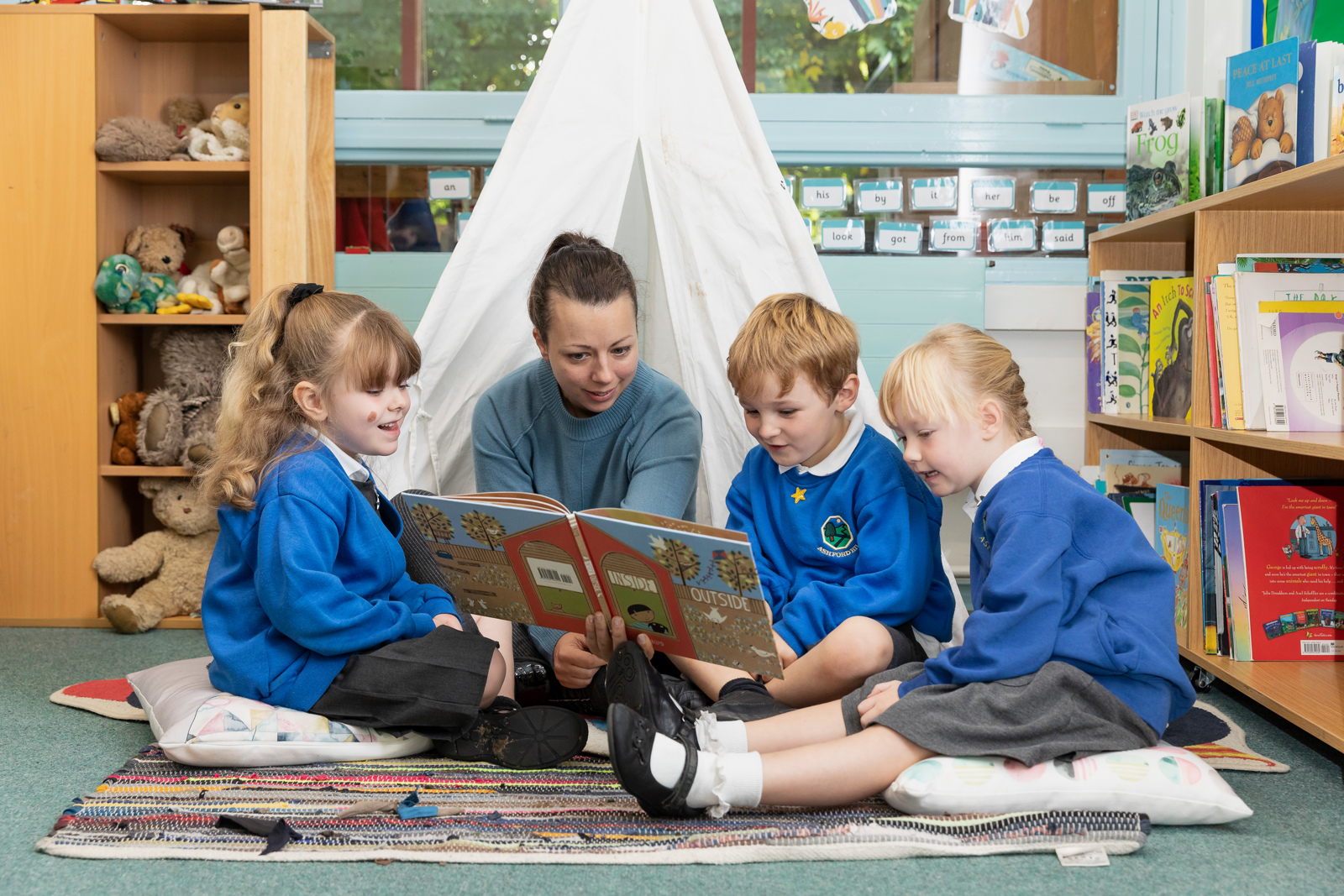English- Writing
Intent
The ability to write with confidence, purpose and accuracy is a tool that will support children throughout their education and beyond. At Ashford Hill, we are committed to working with our children in their journey to achieve this by becoming fluent and independent writers.
We endeavour to equip children with key life skills enabling them to communicate effectively in a range of both spoken and written forms across all subjects and in a range of contexts. Children will use the English language as a vehicle to share and explore their own cultures, emotions, beliefs and knowledge, as well as those in their community and world around them.
The skills of language are essential to making meaning of the world around us and to develop our views and opinions, therefore it is crucial for children to learn to communicate fluently and confidently in both spoken and written form, to participate fully as a member of society.
Implementation
During their time at Ashford Hill, we aim to enable our children to write with a clear point of view that has an impact on the reader. To do this, the children build a growing bank of ambitious vocabulary, together with appropriate grammar and punctuation, and learn how to clearly articulate and structure their ideas. Embedded within this is the ability to discuss and share ideas, views and opinions, developing the ability to communicate clearly through speech. This life skill also has a clear link to the ability to communicate effectively in written form.
All writing is closely linked to a purposefully chosen quality text (these are shared by each year group and are available on our website under the curriculum tab). To write like an author, children need to find out how established authors achieve their desired impact on the reader – in both fiction and non-fiction text types. Therefore, our writing is underpinned by high-quality texts which are analysed and discussed before being used to guide the children’s own writing. Our progression of skills in grammar and punctuation, ensures that all the statutory skills are included within appropriate writing adventures.
Once the children have their author-inspired toolkit, they are ready to write. They then engage in the full process of creating a text: planning, drafting, writing, proof-reading, evaluating and critique and review. The celebration of their final text is also very important. During this process, teacher modelling and sharing of each other’s writing is an important part of the learning.
Alongside this journey, the children also develop their own handwriting (using the letter join programme) that it is joined, clear and legible. The ability to spell is also important if written work is to be quickly understood. At Ashford Hill, our teaching of spelling incorporates the National Curriculum Spelling lists for KS2 and is supported by the `Read Write Inc.` spelling programme.
The more we read, the more accomplished writers we become. Therefore, encouraging our children to read and be exposed to a variety of texts is central to our writing curriculum at Ashford Hill.
Impact
The impact of the teaching of writing at Ashford Hill will be frequently monitored and assessed through:
- Live Assesment for Learning in lessons by teaching staff and learning support staff.
- Teaching assessment Frameworks are used to assess attainment and progress. Teachers then adapt teaching and lessons to ensure that any gaps in knowledge are revisited.
- Regular pupil voice interviews inform us as to how our children feel about maths and help to inform our future teaching and CPD programmes.
- Government statutory tests will be carried out with all children in the summer term for year 6 children. We will also test year 2 children with government prepared papers in the summer term. At this time we will summatively assess the children's writing and adapt our future curriculum according to strengths and weaknesses of our current provision.





